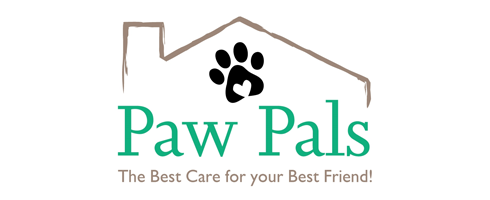You stand at your back door and call your dog to come inside. Your dog may glance at you and go back to whatever it was sniffing. You call again, but this time, your dog does not even look back at you. Why does your dog do that and why your dog won’t come inside when called?
Possible Reasons Why Your Dog Won’t Come Inside When You Call
There are several reasons your dog is not responding to your call to come in. If you can figure out what the problem may be, it may help you know what to do to correct this behavior. One thing that will absolutely not work is punishing your dog by scolding it, yelling at it, or inflicting physical pain on it. Punishing your dog will do nothing except confuse your dog and make it afraid of you. And in all cases, using physical force on your dog is nothing more than abusive.
You and your dog will be better off if you try to understand why your dog may be ignoring you. Here are common reasons that may explain your dog’s behavior:
Your Dog Has Not Been Trained To Respond To Your Command
Think about whether your dog simply does not understand what you are asking it to do.
If you have recently gotten your dog from a rescue or another owner, your dog may be confused about what you want. It may not yet view you as a companion, or it may have lived outside and been neglected. It may just need some time to learn to trust you and understand what you are asking it to do.
With a new dog or a fearful dog, make sure your tone of voice is positive, reassuring and inviting—not threatening or angry.
If your dog has never been trained to come when you call it, you cannot expect that it will suddenly understand what you want. In that case, you may need to enroll yourself and your dog in an obedience training class or hire a professional trainer to help you.
Your Dog May Not Remember The Command Word
With a puppy or young dog that is just learning obedience behaviors, the dog may be unsure or may have forgotten what the command word means. Young dogs have limited attention spans. They need a lot of repetition, practice, and positive reinforcement before they can respond reliably.
Another possibility is that your dog was trained but was not trained well, and the “come” command has lost its meaning. Or your dog thought (rightly or mistakenly) it was being punished when it responded to your command. In either case, your dog may not know what you want or is too scared to comply.
Your Dog Is A Breed That Is Independent
Some dog breeds are independent, even stubborn. Getting an independent dog to do something it does not want to do can be challenging to the owner. These dog breeds have been selectively bred for generations to be confident, comfortable making decisions on their own, and spend much of their time outside. Such independent dog breeds include hounds and breeds that guard livestock.
Coming Inside May Feel Like Punishment To Your Dog
An independent dog like this may feel as if coming inside is punishment.
Also, a dog may regard it as punishment if the dog does not get to spend enough time outside where it can get the mental stimulation it needs from exploring its environment. Dogs need to be able to sniff the ground—it is important to your dog’s mental wellbeing. If it does not have enough opportunity to do that, it will be very reluctant to come inside where it is deprived of that canine pleasure.
There Is No Positive Reinforcement Or Reward For Coming Inside
Think about how you react when your dog comes inside. Do you praise it and give it a treat for being a good dog? If so, your dog will be glad to come inside where it is safe and loved.
Or do you ignore the dog when it comes in, or worse, speak to it harshly even though it did exactly what you asked it to do? Have you or another member of your household created a negative environment indoors due to being overstressed or fatigued? A sensitive dog will pick up on those signals and may prefer to be outside for a while longer. Such a dog will be less inclined to respond to your call.
Your Dog Has Learned To Live Outside
If your dog spends most of its time outside in your yard, it likely has developed the habit of living outside. Your dog probably has favorite resting places, and that is where it gets its food and water. Your dog may have become independent in that living arrangement and does not feel the need to respond to your direction.
Talk With Paw Pals For More Info On Why Your Dog Won’t Come Inside When Called
If you need help working with your dog, contact the dog care experts at Paw Pals. Their knowledgeable professionals are available to spend time with your dog and help make sure your dog gets the attention and consistency in training it needs.


